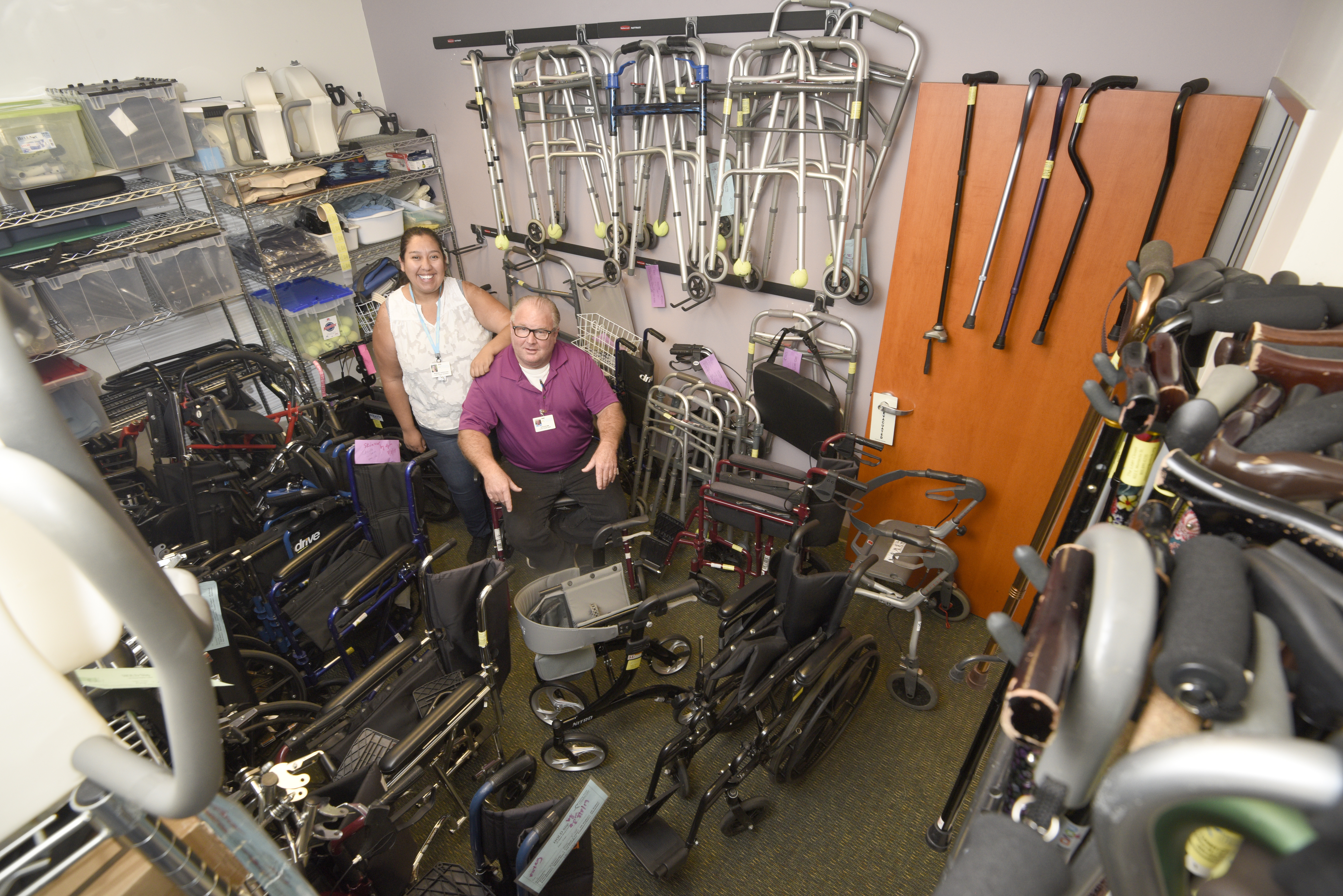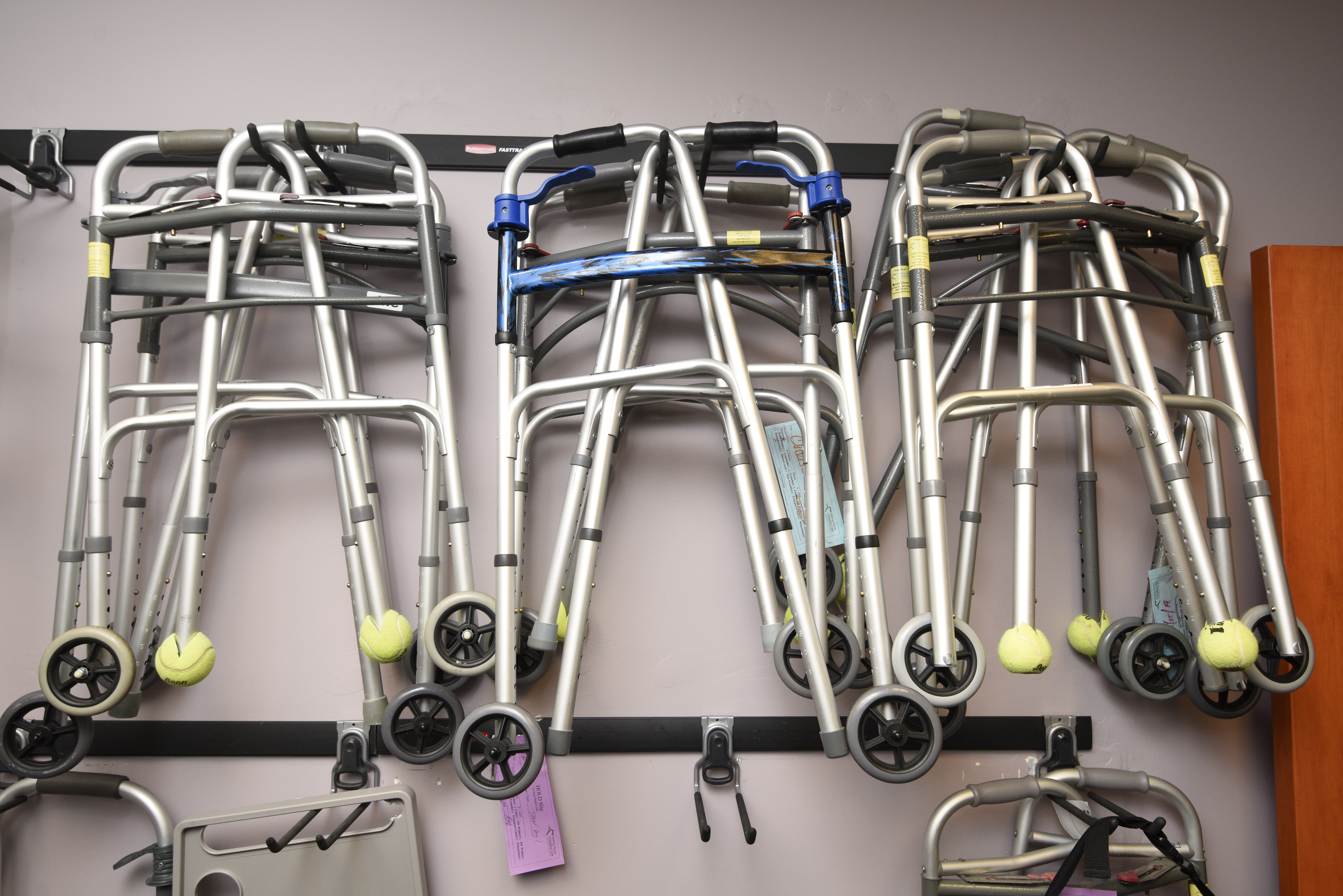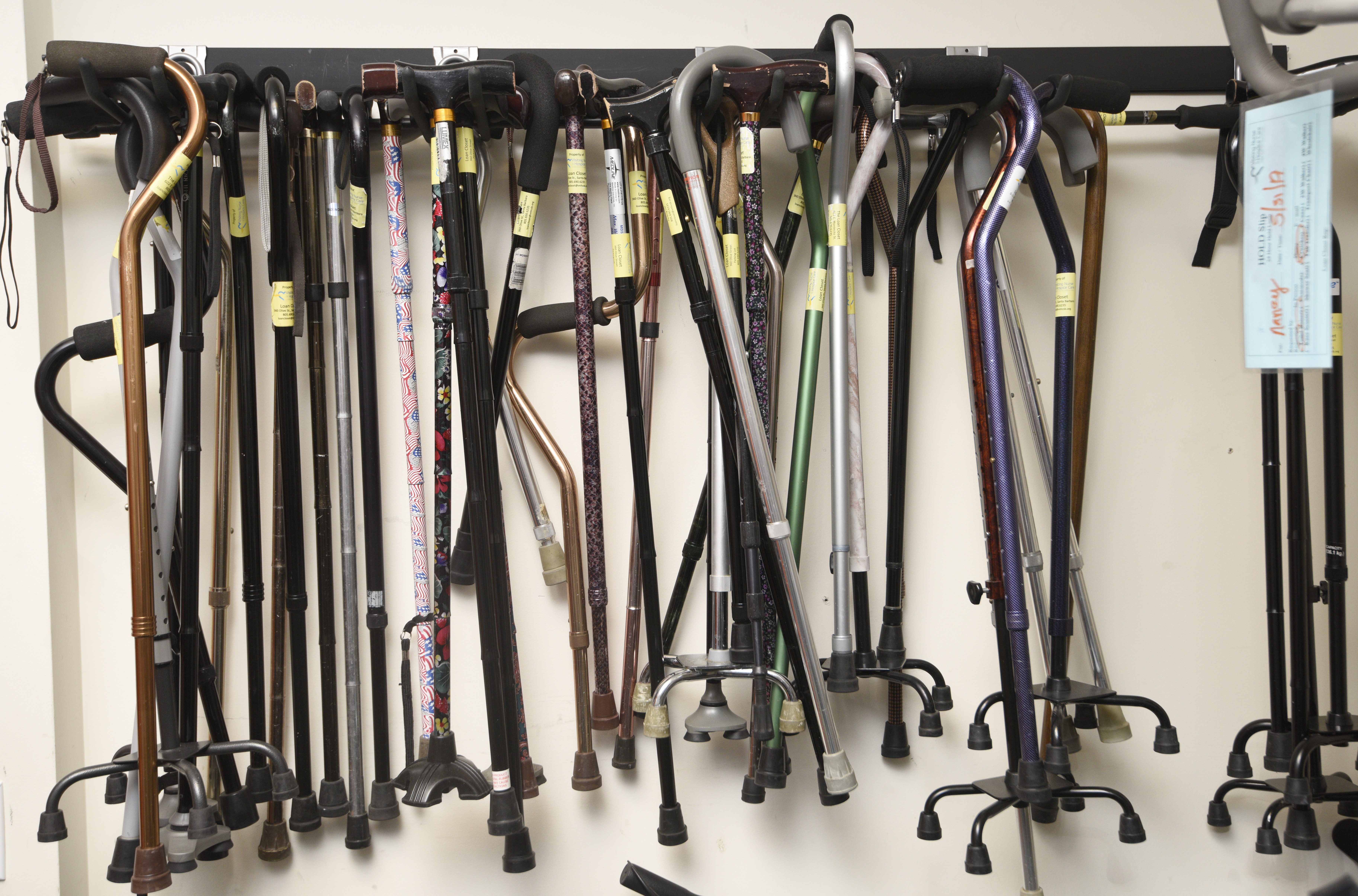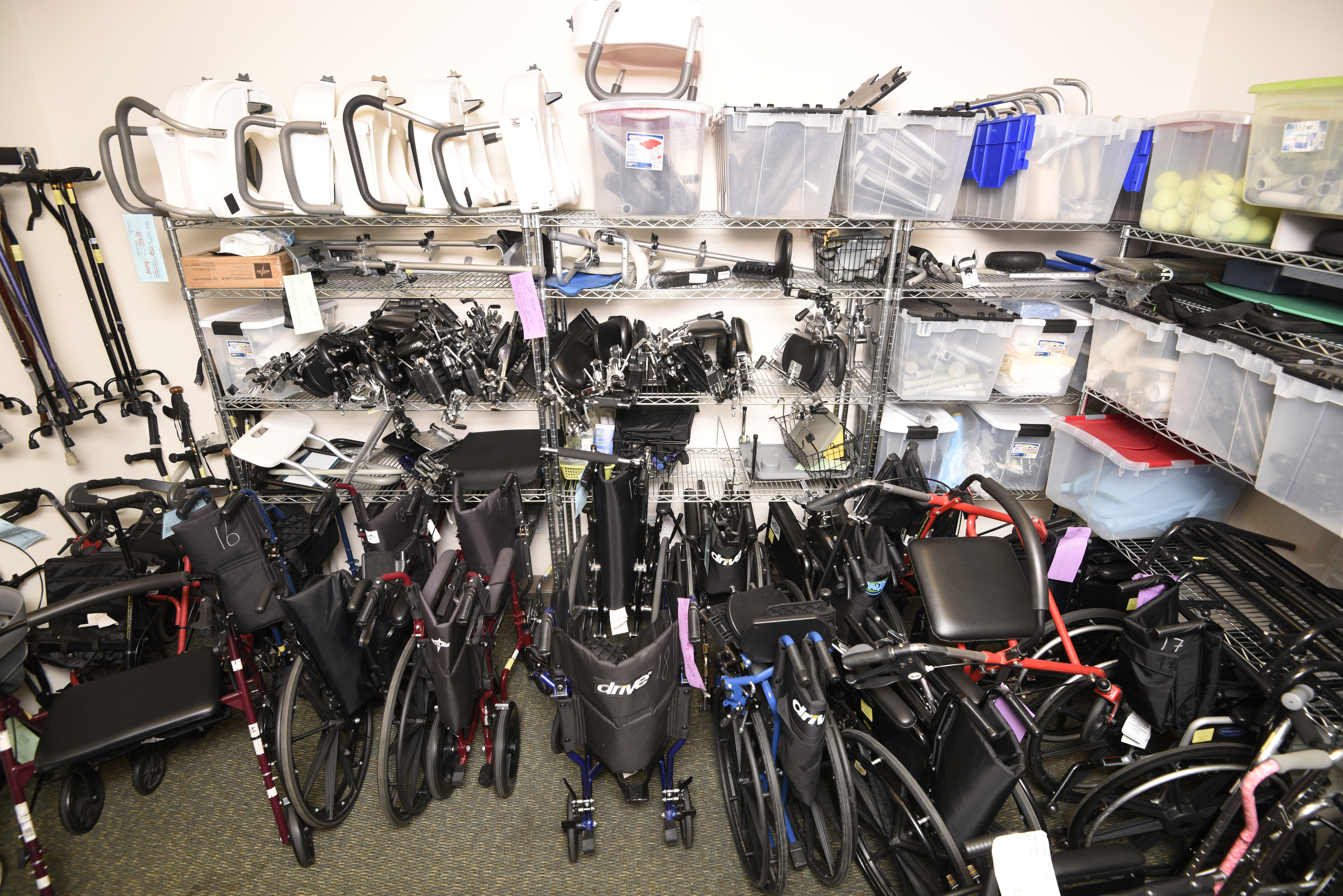Back in 1951, T.M. Storke was at the peak of his game, poised to yank two big rabbits out of his storied Stetson hat just a few years hence: the creation of Lake Cachuma and the development of UCSB in Isla Vista. Both provided the pivotal DNA from which contemporary Santa Barbara would spring.
At the time, Storke was a 75-year-old man, and for all his omnipotence, still susceptible to the frailties of age. Details remain murky, but surgery of some sort was required. So too was the inconvenient intrusion of recovery time, accompanied by the cumbersome clutter of crutches, wheelchairs, and other paraphernalia. When it was over, Storke found himself encumbered with equipment he no longer needed. And he was out of pocket a decent chunk of change. Another rich and powerful guy might have shrugged and moved on. Storke made something happen.
Sixty-eight years later, that something — the Loan Closet — is still happening, providing free crutches, wheelchairs, knee scooters, walkers, canes, shower seats, and a host of other recuperative necessities for anyone who shows up. “We serve about 30 to 40 people a day, Monday through Friday,” said Bob Krumm, who has functioned as chief, cook, and bottle washer for the Loan Closet, located by Olive and Gutierrez streets, for the past eight years. That translates to about 4,000 people a year, said Krumm, who previously worked for a tool company in Ventura. Krumm reckons the Loan Closet’s reach could be twice what it is. “I’m guessing half the people in town don’t know we even exist,” he said.
The UCSB Economic Forecast Project hasn’t gotten around to calculating how much the Loan Closet—part of Visiting Nurses & Hospice Care—has saved the community yet, but it’s fair to say it’s been a lot. A knee scooter typically costs about $300 to buy and wheelchairs start at around $400. At the Loan Closet, they’re free. You do the math.
Krumm fell into the gig by accident. An itinerant handyman, he painted a room for the president of Visiting Nurses, who was impressed by the work. As often happens, one thing led to the next. Today, Krumm is one of two full-time employees backed up by four volunteers. There’s no shortage of equipment donated; space is the real constraint. The Loan Closet has a 16-foot Pod and some rooftop storage, but most of what they have is held in two small rooms. It’s not enough. “If I had more space, I wouldn’t run out of equipment,” said Krumm
With hip and knee replacement surgery now commonplace, demand is especially intense. Krumm’s job is to make sure all equipment is clean, sanitized, and working. Not everything that rolls out the door comes back, he said. And not everything that comes back is in good working order. UCSB students, he said, can be murder on the gear, especially when they cram into wheelchairs for joyrides.
Some equipment, Krumm cautioned, the Loan Closet doesn’t stock: beds or any electric devices. While the equipment is free, donations are always welcome and strongly encouraged. Operating on a shoe-string budget, the Loan Closet has been forced to rely on the kindness of strangers and hosts three fundraisers a year. The next one takes place this September at the Yacht Club.
Krumm, 57 and a graduate of San Marcos High School, said the toughest part of the job involves families dealing with terminal illnesses. Being able to provide comfort and assistance in such moments, he added, has been the most satisfying.








